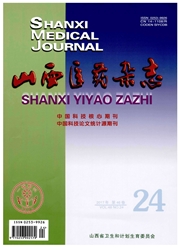

 中文摘要:
中文摘要:
采用修订的《脑瘫患儿父母应对方式问卷》,调查了脑瘫患儿父母应对方式的特点,并对32名中轻度脑瘫患儿父母进行了对照组和干预组对比研究,探讨了脑瘫患儿父母应对方式的心理干预效果。研究中,对照组父母不进行心理干预,干预组父母进行8周心理干预。心理干预法包括认知疗法和集体疗法,两种疗法每周各进行一次。研究表明:(1)母亲“面对”得分显著低于父亲及他人;(2)中度脑瘫患儿的父母比轻度脑瘫患儿的父母更倾向于屈服现实;(3)心理干预后,干预组父母后测“面对”得分极为显著高于前测得分;干预组父母后测“回避”和“屈服”得分极为显著低于前测得分。
 英文摘要:
英文摘要:
The revision of " Questionnaire on parental coping styles of children with cerebral palsy" was used to investigate the characteristics of parental coping style, and the group assessed the effect of psychological interventions on the parental coping styles of children with mild to moderate cerebral palsy. 32 participants who completed two wave data collection were randomly assigned to two groups: control group and intervention group. The parents in control group did not complement psychological intervention, while the parents in intervention group carried out cognitive therapy and collective therapy. Each treatment was conducted once a week eight weeks. The result revealed that : ( 1 ) The scores of the mothers" confrontation were significantly lower than those of the fathers and other people. (2) The parents of the children with moderate cerebral palsy were more likely to accept the reality than those of the children with mild cerebral palsy. (3) After the psychological interventions, the post-test confrontation score of the parents in the intervention group was significantly higher than that in the pre-test, while the scores of avoidance and acceptance in the post-test are significantly lower than those in the pre-test.
 同期刊论文项目
同期刊论文项目
 同项目期刊论文
同项目期刊论文
 期刊信息
期刊信息
